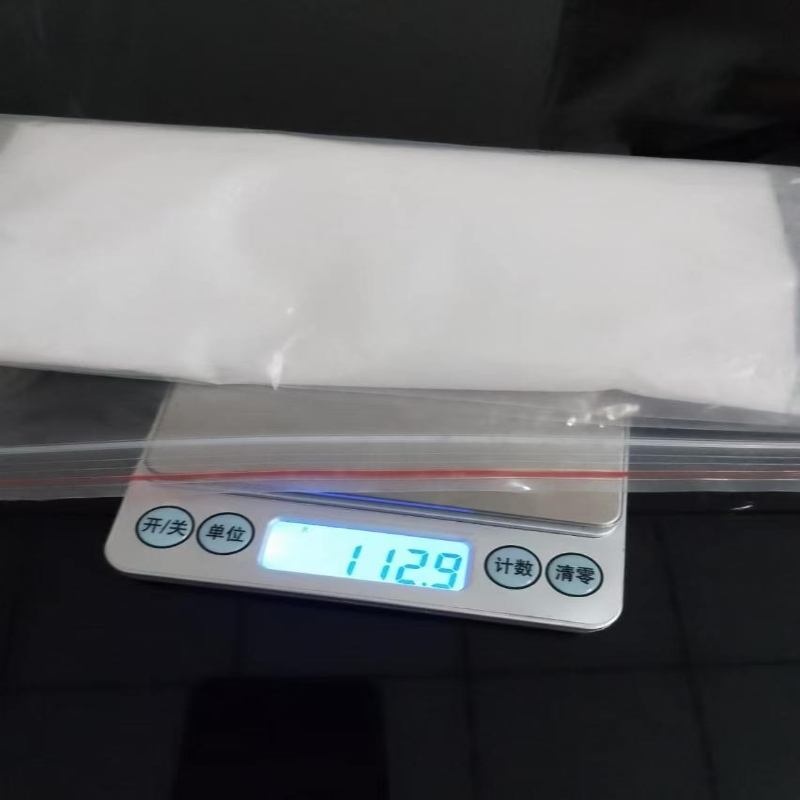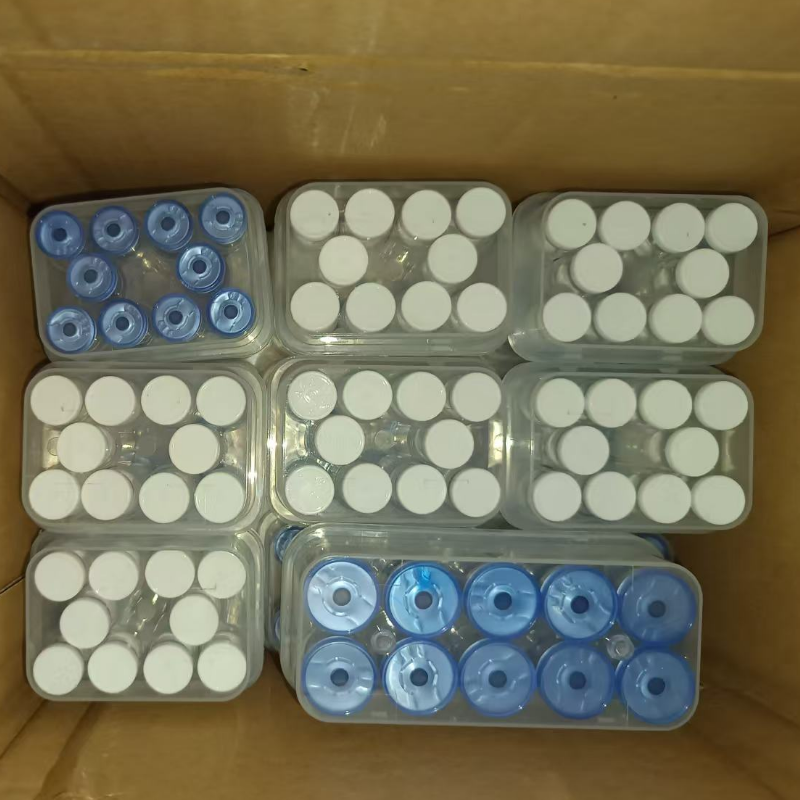-
Categories
-
Pharmaceutical Intermediates
-
Active Pharmaceutical Ingredients
-
Food Additives
- Industrial Coatings
- Agrochemicals
- Dyes and Pigments
- Surfactant
- Flavors and Fragrances
- Chemical Reagents
- Catalyst and Auxiliary
- Natural Products
- Inorganic Chemistry
-
Organic Chemistry
-
Biochemical Engineering
- Analytical Chemistry
-
Cosmetic Ingredient
- Water Treatment Chemical
-
Pharmaceutical Intermediates
Promotion
ECHEMI Mall
Wholesale
Weekly Price
Exhibition
News
-
Trade Service
▎The KRAS gene edited by WuXi AppTec's content team is one of the most frequently mutated oncogenes in human cancers.
In addition to directly promoting the proliferation and survival of tumor cells, its mutations can also have an impact on the tumor microenvironment.
Because its surface lacks a "pocket" that can bind to small molecule drugs, KRAS protein is also a famous "undrugable" target in history.
However, the development of drugs for KRAS mutants has achieved breakthroughs in recent years.
Amgen and Mirati Therapeutics' small molecule inhibitors for KRAS G12C mutants have entered a critical clinical development stage.
Among them, Amgen's KRAS G12C inhibitors have been obtained.
The FDA’s priority review qualification is expected to be approved this year.
A few days ago, Eli Lilly and Company announced that it will announce the preclinical research results of its next-generation KRAS G12C specific inhibitor LY3537982 at the AACR annual meeting in April this year.
Based on the positive preclinical results, the company plans to launch a phase 1 clinical trial this year to test the safety and potential efficacy of this candidate drug.
The abstract released by AACR showed that this specific KRAS G12C inhibitor showed good activity in in vitro experiments.
The activation of KRAS needs to be combined with GTP.
KRAS G12C inhibitors bind KRAS G12C mutants to lock KRAS in a state of binding to GDP, thereby inhibiting KRAS signal transduction.
In lung cancer cell lines carrying the KARS G12C variant, the IC50 of LY3537982 inhibiting the binding of KRAS to GTP reached 3.
35 nM.
In a variety of mouse tumor models containing KRAS G12C gene mutations, LY3537982 can significantly inhibit tumor proliferation or lead to complete tumor regression.
Preclinical studies also found that certain targeted therapies combined with LY3537982 may produce better anti-cancer effects, including the specific AurA inhibitor LY3295668 and the EGFR inhibitor cetuximab.
Researchers have shown that this potent KRAS G12C inhibitor is expected to nearly completely inhibit the activation of KRAS protein, which may provide the greatest clinical benefit for patients with KRAS G12C gene mutations.
Note: This article is intended to introduce medical and health research, not to recommend treatment options.
If you need guidance on treatment plans, please go to a regular hospital for treatment.
Reference materials: [1] Lilly rejoins KRAS race with swipe at Amgen and Mirati, plans 2021 clinical trial.
Retrieved March 11, 2021 from https:// at-amgen-and-mirati-plans-2021-clinical-trial[2] 1259-Preclinical characterization of LY3537982, a novel, highly selective and potent KRAS-G12C inhibitor.
Retrieved March 11, 2021, from https://www.
abstractsonline.
com/pp8/#!/9325/presentation/2344
In addition to directly promoting the proliferation and survival of tumor cells, its mutations can also have an impact on the tumor microenvironment.
Because its surface lacks a "pocket" that can bind to small molecule drugs, KRAS protein is also a famous "undrugable" target in history.
However, the development of drugs for KRAS mutants has achieved breakthroughs in recent years.
Amgen and Mirati Therapeutics' small molecule inhibitors for KRAS G12C mutants have entered a critical clinical development stage.
Among them, Amgen's KRAS G12C inhibitors have been obtained.
The FDA’s priority review qualification is expected to be approved this year.
A few days ago, Eli Lilly and Company announced that it will announce the preclinical research results of its next-generation KRAS G12C specific inhibitor LY3537982 at the AACR annual meeting in April this year.
Based on the positive preclinical results, the company plans to launch a phase 1 clinical trial this year to test the safety and potential efficacy of this candidate drug.
The abstract released by AACR showed that this specific KRAS G12C inhibitor showed good activity in in vitro experiments.
The activation of KRAS needs to be combined with GTP.
KRAS G12C inhibitors bind KRAS G12C mutants to lock KRAS in a state of binding to GDP, thereby inhibiting KRAS signal transduction.
In lung cancer cell lines carrying the KARS G12C variant, the IC50 of LY3537982 inhibiting the binding of KRAS to GTP reached 3.
35 nM.
In a variety of mouse tumor models containing KRAS G12C gene mutations, LY3537982 can significantly inhibit tumor proliferation or lead to complete tumor regression.
Preclinical studies also found that certain targeted therapies combined with LY3537982 may produce better anti-cancer effects, including the specific AurA inhibitor LY3295668 and the EGFR inhibitor cetuximab.
Researchers have shown that this potent KRAS G12C inhibitor is expected to nearly completely inhibit the activation of KRAS protein, which may provide the greatest clinical benefit for patients with KRAS G12C gene mutations.
Note: This article is intended to introduce medical and health research, not to recommend treatment options.
If you need guidance on treatment plans, please go to a regular hospital for treatment.
Reference materials: [1] Lilly rejoins KRAS race with swipe at Amgen and Mirati, plans 2021 clinical trial.
Retrieved March 11, 2021 from https:// at-amgen-and-mirati-plans-2021-clinical-trial[2] 1259-Preclinical characterization of LY3537982, a novel, highly selective and potent KRAS-G12C inhibitor.
Retrieved March 11, 2021, from https://www.
abstractsonline.
com/pp8/#!/9325/presentation/2344







